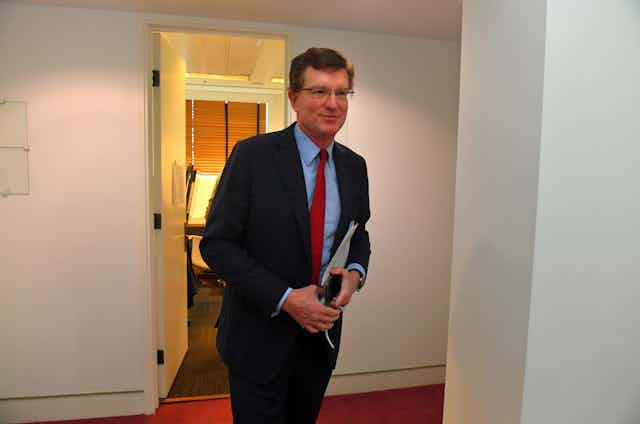The government has reclassified university courses in psychology and social work into a cheaper fee band under its Job-ready Graduates legislation, to be introduced into parliament on Wednesday.
The change, part of a deal with the Nationals, means instead of paying a proposed $14,500 for these courses, students will now pay $7,950.
The Nationals have also won a change in the planned $5000 Tertiary Access Payment for students from outer regional and remote areas who relocate to study. These payments will now be provided to universities to offer as scholarships, with the scheme structured in a way that favours regional institutions.
As well, the government has agreed not to proceed with a January 1 2024 cut off for fee-grandfathering for students enrolled before January 1 next year.
Originally social work and psychology (as distinct from clinical psychology, a post-bachelor qualification) were both in the most expensive band 4.
To offset the reductions in the proposed fees for these courses, the maximum fee for student bands 1 and 2 are being increased by $250.
The new fee structure is designed to cut the cost to students of courses in areas of expected future job demand. But it contains big fee hikes for law and courses in the humanities.
Education Minister Dan Tehan said: “We have made sensible amendments to the legislation after listening to the constructive feedback provided during the consultation process”.
The Minister for Regional Education, Andrew Gee, from the Nationals, said the amendments would “help bridge the gap between country communities and the cities, including the divide in educational attainment and access to services such as mental health”.
“Country universities have made it clear that they like the fact that the reforms provide faster growth in university places for them, and bring stability and certainty to the tertiary education sector,” Gee said.
“The changes to the Tertiary Access Payment mean that country universities are able to better compete on a more level playing field with their city counterparts to attract country students, while uncapped grandfathering means that country students studying part-time can now rest easy with funding certainty.”
But as they mark a win on education, the Nationals are facing another bout of destabilisation with The Australian reporting speculation Deputy Prime Minister Michael McCormack’s leadership will come under pressure later in the year.
Questioned about the speculation, Deputy Nationals leader David Littleproud, who has recently been highly visible in the media on the issue of state borders, said on Tuesday the party was “100%” behind McCormack, who would lead them to the next election.
Asked whether he wanted to be leader someday, Littleproud said: “Obviously everybody in this place aspires to lead their party. but there’s a time and place and you’ve got to understand very few have achieved it.”

